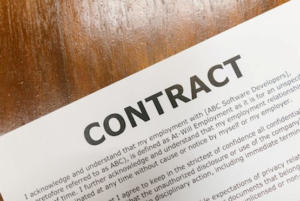 Lease purchase agreements, also known as rent-to-own contracts, are a unique and flexible arrangement that allows potential buyers to live in a property while preparing to purchase it in the future. This arrangement provides benefits for both buyers and sellers, making it an attractive option in today’s real estate market. See Rent to Own Homes for $1.97 ( 7-Day trial)
Lease purchase agreements, also known as rent-to-own contracts, are a unique and flexible arrangement that allows potential buyers to live in a property while preparing to purchase it in the future. This arrangement provides benefits for both buyers and sellers, making it an attractive option in today’s real estate market. See Rent to Own Homes for $1.97 ( 7-Day trial)
Understanding the basics of lease purchase agreements
A lease purchase agreement combines elements of a traditional lease and a purchase agreement. It typically involves a lease period, during which the buyer pays rent to the seller, and a purchase option, which gives the buyer the right to purchase the property at a predetermined price within a specified timeframe. This arrangement provides buyers with the opportunity to build equity in the property while renting, and sellers with a potential buyer who is committed to purchasing the property.
Benefits of a lease purchase agreement for buyers
One of the key benefits of a lease purchase agreement for buyers is the ability to lock in a purchase price for the property. In a market where prices are rising, this can be a significant advantage. Additionally, buyers have the opportunity to test out the property and the neighborhood before committing to a purchase. This allows them to ensure that the property meets their needs and that they are comfortable with the area.
Furthermore, lease purchase agreements often allow buyers to accumulate rent credits. These credits are applied towards the purchase price of the property, effectively reducing the overall cost. This can be particularly beneficial for buyers who may not have a large down payment or who are working on improving their credit score.
Benefits of a lease purchase agreement for sellers
Sellers also stand to benefit from entering into a lease purchase agreement. Firstly, this arrangement can attract potential buyers who may not qualify for a traditional mortgage at the present time, but are committed to purchasing a home in the future. This expands the pool of potential buyers and increases the chances of selling the property.
Additionally, sellers can continue to generate income from the property while it is being leased. This can be especially advantageous if the property has been on the market for an extended period of time or if the seller has already purchased a new home. The rental income can help cover mortgage payments and other expenses.
How to negotiate a lease purchase agreement
Negotiating a lease purchase agreement requires careful consideration of the terms and conditions. Buyers and sellers should discuss and agree upon the purchase price, lease period, monthly rent, and any potential rent credits. It is important to document these agreements in a written contract to avoid any misunderstandings or disputes in the future.
Buyers should also consider including contingencies in the agreement, such as the option to terminate the agreement if they are unable to secure financing within a specified timeframe. Sellers may want to include provisions that protect their interests, such as requiring the buyer to maintain the property in good condition or pay for repairs.
Common misconceptions about lease purchase agreements
There are several misconceptions surrounding lease purchase agreements that are important to address. One common misconception is that these agreements are only for individuals with poor credit. While it is true that lease purchase agreements can be an attractive option for buyers who are working on improving their credit, they are not limited to this demographic.
Another misconception is that lease purchase agreements are less secure than traditional purchases. While it is true that there are risks involved, such as the buyer defaulting on the agreement, sellers can protect themselves by carefully screening potential buyers and including provisions in the contract that address potential issues.
Potential pitfalls to be aware of in a lease purchase agreement
While lease purchase agreements offer many benefits, there are potential pitfalls that both buyers and sellers should be aware of. One common pitfall is the risk of the buyer being unable to secure financing at the end of the lease period. To mitigate this risk, buyers should work on improving their credit and saving for a down payment during the lease period.
Another pitfall is the possibility of the property depreciating in value during the lease period. Sellers should carefully consider the market conditions and price the property accordingly to ensure they are not at a disadvantage when it comes time to sell.
Steps to take when entering into a lease purchase agreement
When entering into a lease purchase agreement, both buyers and sellers should take certain steps to protect their interests. Buyers should thoroughly inspect the property and conduct a title search to ensure there are no liens or other encumbrances on the property. It is also advisable to have a home inspection to identify any potential issues.
Sellers should consider consulting with a real estate attorney to draft the lease purchase agreement and ensure it complies with local laws. They should also conduct a thorough background check on potential buyers to assess their financial stability and ability to fulfill the terms of the agreement.
Alternatives to lease purchase agreements
While lease purchase agreements can be a beneficial arrangement, they may not be suitable for everyone. There are alternative options available, such as lease options, land contracts, or traditional purchases. It is important to carefully consider individual circumstances and consult with professionals, such as real estate agents or attorneys, to determine the best course of action.
Conclusion: Is a lease purchase agreement right for you?
Lease purchase agreements offer a unique opportunity for both buyers and sellers in the real estate market. They provide flexibility, the ability to build equity, and the potential to secure a purchase price in a rising market. However, they are not without risks and require careful consideration and negotiation.
If you are considering a lease purchase agreement, it is important to weigh the benefits and potential pitfalls. Consult with professionals in the field and carefully evaluate your own financial situation and long-term goals. With the right approach and proper due diligence, a lease purchase agreement can be a valuable tool in achieving your real estate objectives.
CTA: Contact a real estate professional today to learn more about lease purchase agreements and determine if it is the right option for you.

























